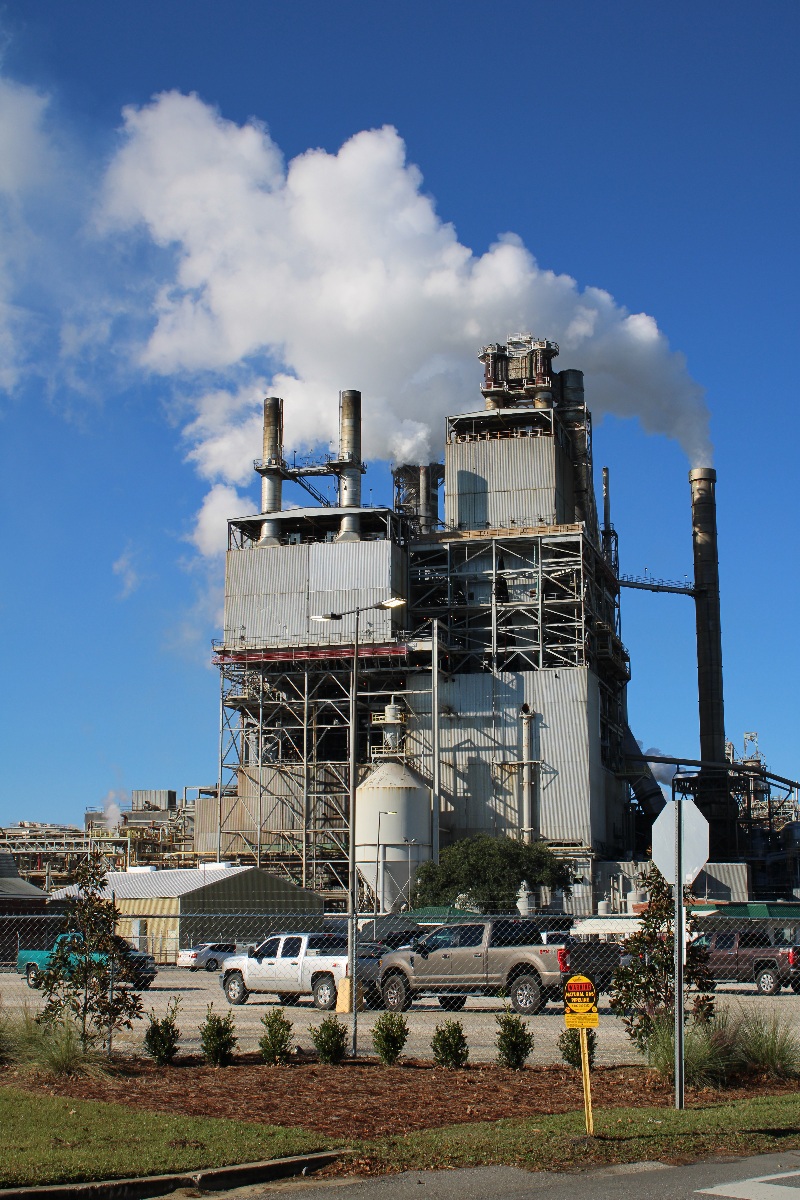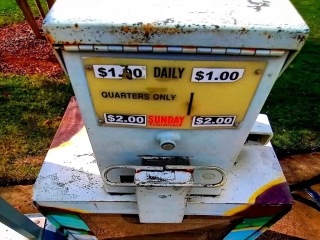
GEORGETOWN, SC (ECG) – On the way into Georgetown I noticed the smokestacks and figured it to be some more run-of-the-mill industrialization. When I finally got to the culprit I thought it looked like an old fashioned paper mill. Sure enough, that’s what it is.
Back in the olden days when I was a kid we traveled for family vacations to Florida. Somewhere along the way the smell of the paper mills would engulf the vehicle, even if the windows were rolled up. At first, I didn’t notice any odor from this one and I imagine newer standards and equipment are responsible for cutting the emissions to a tolerable scent I only noticed at all as I was on the way out of town.
When I first saw it was indeed a paper mill I was a bit surprised because, while I haven’t done any research on the subject, I’m quite certain that many paper mills must have shut down in the wake of the internet. No explanation is needed as most folks are surely aware that so many things made of paper have transitioned onto the internet.
As a conservationist, you gotta be glad in general that the environment, and trees, have benefited greatly. And, while the internet has created new industries and jobs, we also know there have been some difficult and sometimes painful economic shifts as well.
I am poignantly reminded of Millinocket, Maine. Before commencing on the East Coast Greenway I completed 800 miles on the Appalachian Trail ending at Katahdin and then shuttling into Millinocket.
While getting a haircut at an old fashioned barber shop there, the conversation led to the revelation that Millinocket was once a pulp and paper mill town and after shutdowns many residents had left for better opportunities. Millinocket was a small town to begin with and has lost more than half it’s population since 1980.
It’s quite an irony since so many AT hikers, usually environmentally motivated, rely on accomodations at Millinocket. I found the folks in Millinocket to be welcoming and friendly. But, I did sense an undertow of chagrin apparently motivated by the conflicting realities that, at least for the time being, have left unbalanced economic results there.
Georgetown, in the meantime, has a long and storied history going back to 1529. It’s economy has also included paper, lumber and steel production. Georgetown has also been losing population since 1970, apparently from a number of factors.
There’s no doubt about it, there have been big winners, and big losers from the advent of the internet. By now, many sectors that experienced injury and pain over the last four decades have largely shifted and mostly recovered moving on into a new world punctuated by all things digital.
Even still, for a few that never quite recovered and maybe even for a few that did, there still seems to be a lingering, if considerably less acrid, odor to it all.
©2024 – Jim Porter Casey




